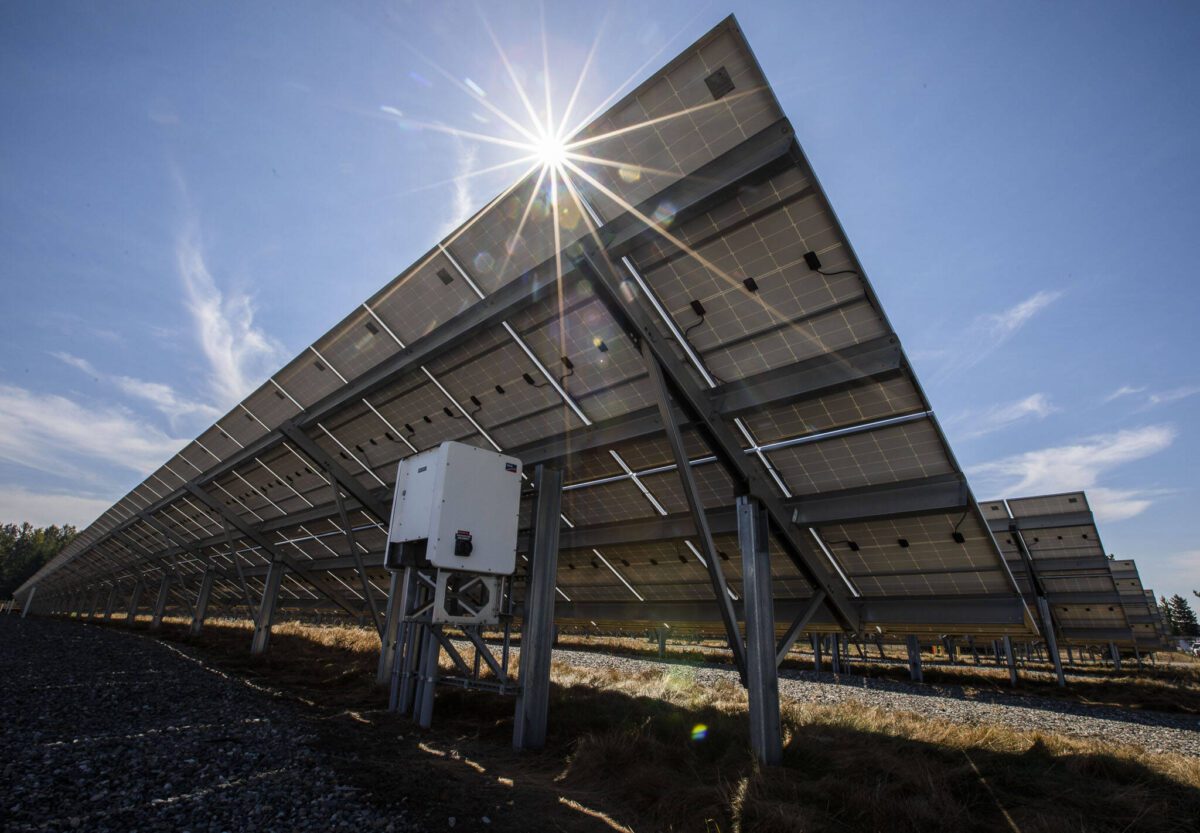Solar Power Would be Expand in WA Neighborhoods
time:2024-01-30 09:26:08 Views:0 author:Jinan Freakin Power Ltd.
The measure looks to benefit people who can’t get solar energy of their own — but could via a neighborhood grid.
OLYMPIA — For one reason or another, rooftop solar is out of reach for a lot of people in the state. For Mason Rolph, a co-founder of Olympia Community Solar, his status as a renter is the obstacle. In other cases, there could be too much tree coverage atop the house, or the roof is too old. The list goes on. Rolph supports Senate Bill 6113, also known as the “Fair Access to Community Solar Act.” The bill, sponsored by Sen. John Lovick, D-Mill Creek, aims to boost access to community solar projects in the state, particularly for low-income households.
Community solar projects are large arrays of panels that nearby residents can subscribe to get their energy from and receive credits on their power bill, without putting a solar panel on their roof. The Snohomish County Public Utility District already has one such project up and running in Arlington. More than 500 customers have signed up to receive benefits from the Arlington Microgrid. Active since 2021, the microgrid is scheduled to run for 20 years. In south Everett, the PUD plans to break ground this year on a new 1.5 acre community solar project next to Walter E. Hall Park.

The main purpose of Lovick’s bill is to make it easier for a community solar project to get online and allow third parties, like nonprofits or small businesses, to manage the projects. Allowing third parties to harness solar energy will help customers get away from expensive, unclean energy produced by private providers, Rolph said. It would also increase the maximum size of community solar projects from 1,000 to 5,000 kilowatts. Arlington’s solar project has a capacity of 500 kilowatts, while south Everett’s project has a planned capacity of 375 kilowatts. And it would require at least half of the customers subscribing to a community solar project be low-income.
“For every one solar panel that gets installed for a high-income customer or corporation,” Rolph said, “there has to be a solar panel benefiting a low-income customer.” Despite being the first state to host a community solar facility in 2006, Washington has lagged in implementing other projects. Community solar can be found in 39 states, but nearly three-quarters of the market is based in just four states, New York, Minnesota, Massachusetts and Florida, according to the U.S. Department of Energy.
The act mandates private energy companies, like Puget Sound Energy, to comply with the program’s requirements and allow third parties to build community solar. For consumer-owned utilities, like the PUD, compliance with the program would be voluntary. Although the program wouldn’t be mandated on the Snohomish County PUD, the utility has some concerns with the bill, spokesperson Aaron Swaney said. The PUD commissioners were briefed on the bill in a meeting Tuesday.
“While the program is technically voluntary for consumer-owned utilities, any public power entity that plans and builds a future community solar project would be bound by the bill’s requirements,” Ryan Collins, the PUD’s state government relations manager, told the commissioners. It’s still early in the legislative session, and the PUD expects the bill to change in the coming weeks. As of now, the PUD does not have any plans to build a third community solar project, Swaney said.
The bill aims to fill the gaps for people who can’t afford their rooftop solar setup. “Net metering” allows households to send excess energy generated by their panels to the local electricity grid, in exchange for credits off an electricity bill. “Net metering is a good policy for the people it works for, it’s just that a lot of folks don’t have access to the financial means to do so,” he said.
Around 11% of Washingtonians are considered “energy burdened,” meaning they spend more than 6% of their income on their energy bill, according to the Washington Utilities and Transportation Commission. While solar energy is a great tool for addressing climate change, it can also work to lower energy bills for cost-burdened customers, Rolph said. The House version of the bill, sponsored by Rep. David Hackney, D-Tukwila, is set for a committee vote Tuesday, a day before its chances would be dashed due to the first cutoff of the session.




